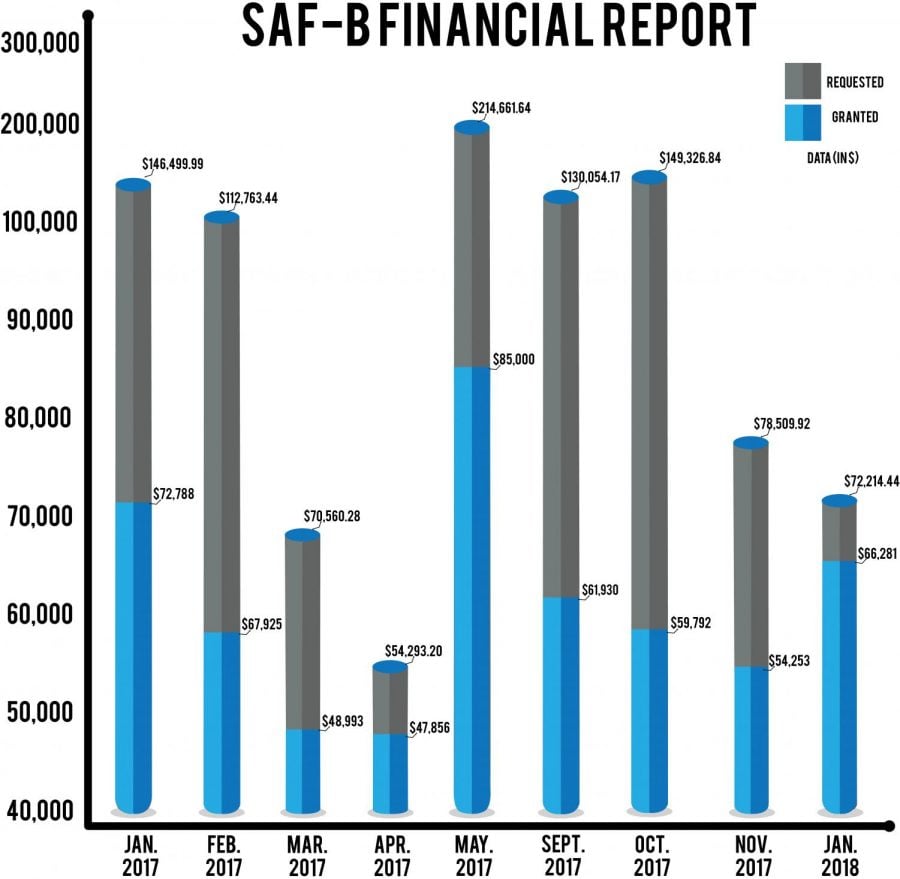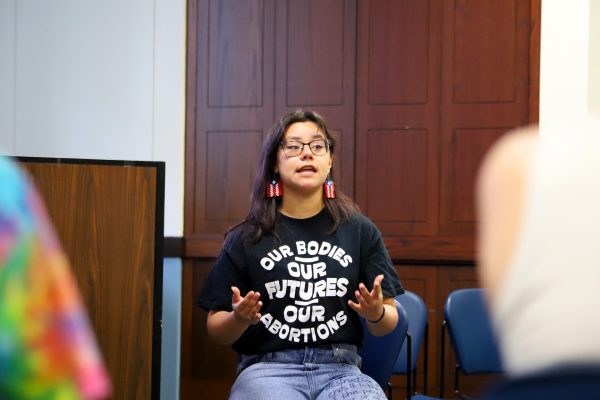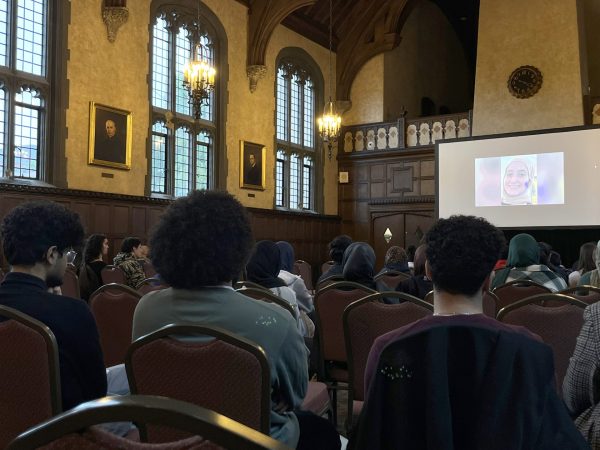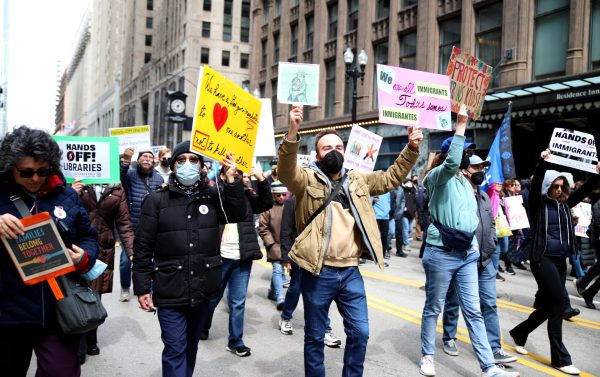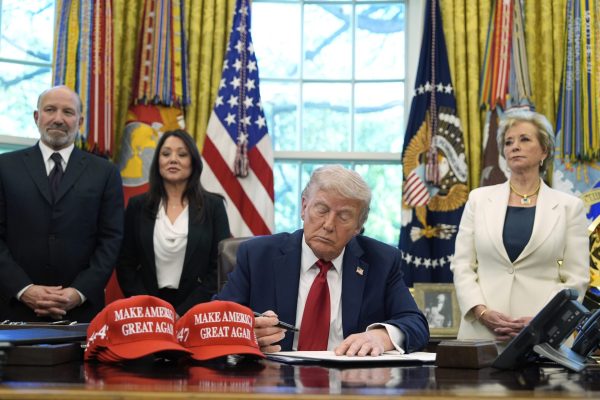SAF-B explained: How is your money being spent?
Over the last year, nine DePaul students decided where $564,818 of student activity fees would be distributed.
The nine voting students, along with one voting DePaul staff member and three non-voting members, make up the Student Activity Fee Board (SAF-B).
Every month the board is given a budget by the university taken from each student’s $27 activity fee. The board is then charged with hearing requests from any and all student organizations that need funding.
SAF-B can sometimes feel like a shadow organization. Their deliberations are closed proceedings and the Office of Student Involvement (OSI) declined to provide the names of the board members, citing department policy. Peggy Burke and Ben Bui from Student Government Association (SGA) provided the names of the board members.
Each month, the board votes on which student organizations get funding, and which do not. The hearings can be long and the deliberations can be arduous.
DePaul has at least 320 active student organizations, according to OSI. Whether it is bringing in a guest speaker or traveling to a lacrosse tournament three states over, organizations aren’t cheap.
Each month, organizations can request funding through a formal application process. The organization must provide pricing quotations and a total amount of requested funding.
If the amount is under $1,000, it is considered a discretionary request and the organization only needs to submit a proposal and wait for a funding decision. However, if the amount is over $1,000, the organization needs to submit a proposal and make a formal presentation at the monthly SAF-B hearing.
Organizations are taken on a first come, first serve basis and a maximum of 20 organizations per month are able to receive non-discretionary funding.
Ben Bui, chairman of the board and treasurer of SGA, said that the 20 spots almost always fill up and organizations are encouraged to apply as early as possible.
The board is made up of 10 voting members, 9 of them being students. There are seven campus groups that get a representative.
In addition to the seven groups that get a representative, there are two voting members that are known as at large selections. For at large selections, OSI takes applications on a needed basis through OrgSync applications and follow-up interviews.
Finally, there is one DePaul staff member that votes on the board. Currently, that member is Michelle Chong, business coordinator for OSI.
Gracie Covarrubias is the vice president of SGA and a former member of SAF-B. She has been in the meetings and has had to make difficult decisions regarding student organization funding.
“It’s an impossible task that we ask of SAF-B every single month,” she said.
Ana Gleyzer, current board member, agreed with Covarrubias that the task asked of the board can be challenging.
“Our board wants to fund everything, but that is often physically impossible,” she said.
Covarrubias said that although some organizations may have gripes with SAF-B, the process itself is extremely fair. She said the board can’t play favorites and includes a wide variety of representatives in order to provide balance.
“There has to be a rationale behind every decision,” she said. “It can’t just be because (the board) doesn’t want to fund something.”
Even organizations that have been denied funding seem to agree with Covarrubias. John Minster is president of the DePaul College Republicans and he believes that his organization has been treated fairly by SAF-B in the past.
“For the most part, we felt that the hearing process was comprehensive and fair,” he said.
Minster did feel that his organization was unfairly discriminated against last September when they tried to get funding for controversial speaker Charles Murray.
“We still don’t understand why they didn’t fund it,” he said.
Minster believed that the board violated the “Guiding Principles for Free Speech and Expression” by not funding Murray due to political ideology.
The board published a decision last September that said, “Ultimately, the Board decided that Charles Murray’s ideas and stance on race, class, and ‘intellectual stratification’ does not align with the Vincentian mission and values that DePaul upholds as an educational institution.”
The College Republicans were not always denied funding for controversial speakers. In April 2017, the organization was granted $10,000 for a speaker honorarium to host conservative speaker Gavin McInnes.
Another issue that Covarrubias raised with SAF-B is its funding of club sports. Over the last year club, sports has been granted 45.13 percent of all awarded funds, receiving $254,923.
“Trying to fund both club sports and student organizations from the same pot is like trying to fund apples and oranges,” she said. “It doesn’t make sense.”
Covarrubias said that the current system may not necessarily be the best system and that everyone could benefit by taking a hard look at how the financial systems operate.
“At most schools, there is a clubs sports council and they have a separate club sports funding pool,” she said.
Covarrubias stressed that she had no issues with the board members or their ability to conduct fair hearings.
“I don’t think there is equity in the way money is distributed,” she said. “I think the process is fair, but there is more we can do to be serving club sports and student organizations.”


